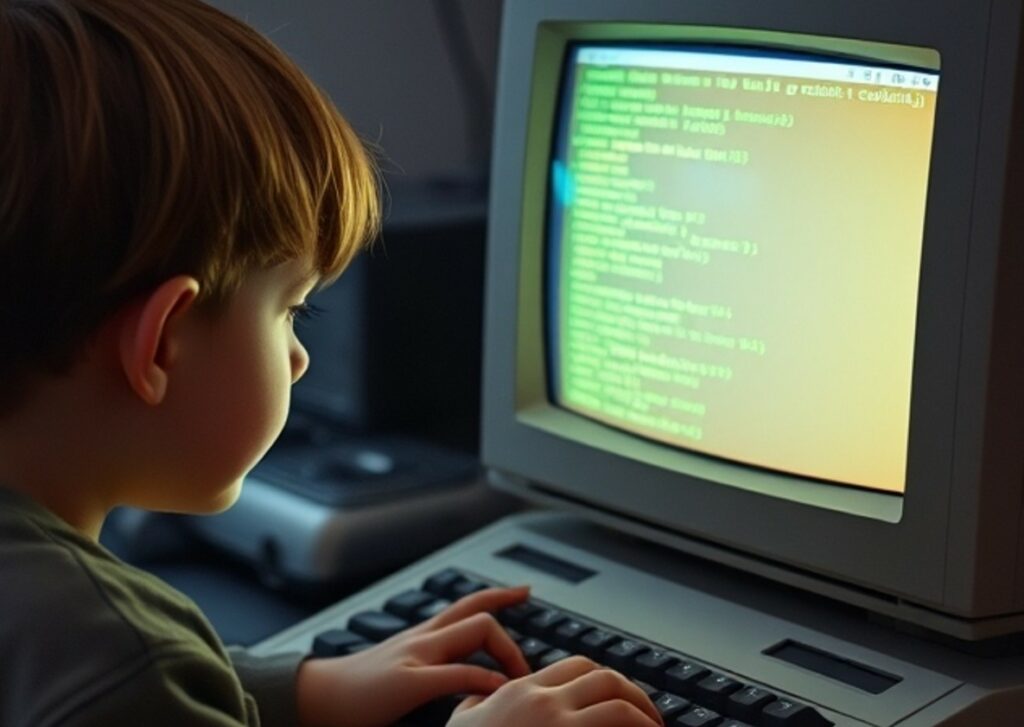Beyond the Code: When AI Reminds Us Who We Are
We are at a crossroads. Not just any crossroads, but an existential one. Artificial Intelligence is no longer science fiction; it is the fog gathering on our path, redefining every certainty. It forces us to ask an uncomfortable question: “Are we ready to question who we are?” This is not a threat, it is an opportunity. It is the chance to look within ourselves, to rediscover our wildest and most irreducible essence. This article is a journey undertaken by someone like me who has combined philosophical inquiry with the action of coaching. A powerful dialogue between two ancient forces: philosophy that delves into the human abyss (from Plato to Sartre) and coaching that transforms abstraction into pure energy. Why this union?
Because AI is not a theoretical problem. It is the existential dilemma that undermines our certainties “here and now.”
Rediscovering the Human Between Philosophy and Coaching
From Heraclitus’ fragments to Derrida’s deconstructions, philosophy has always been an immersion in being. Today, that dive takes us into a new, dizzying abyss: artificial intelligence, which is not just technology; it is a metaphysical crossroads that is rewriting the map of humanity. Consciousness, identity, freedom: the coordinates are wavering. Like Socrates using the maieutic mirror, AI forces us to dig beneath the surface.
Philosophy asks itself unsparingly:
“What is left of us when machines think, learn, and create?”
What is the insurmountable limit of our humanity?”
Coaching responds with the challenge to action:
“How can we define our uniqueness in this digital chaos?”
“What are the essential values that no AI will ever be able to imitate?”
It’s not about competing with the machine. It’s about rediscovering our unique “quidditas”, what no algorithm will ever be able to reduce to code.
From doxa to data
Plato warned us: beware of doxa (opinion) against episteme (founded knowledge). Today, AI multiplies doxa infinitely, inundating us with data that simulates rootless knowledge. We are in the age of perfect disinformation!
Philosophy shakes us with the question:
“Does the amount of information produce wisdom or just noise?”
Coaching puts us to the test:
“How can we transform the avalanche of information into true awareness?”
“What inner tools must we hone to discern, filter, and find depth in doubt, not in incessant flow?”
Human Imperfection
Heidegger warned against technology (Gestell), which risks reducing man to a “disposable fund,” a pure resource to be optimized.
Philosophy challenges us:
“Are we willing to give up our authenticity in the name of sterile digital efficiency?”
Coaching encourages us:
“How can we celebrate and protect those intrinsically human qualities that no machine will ever replicate?”
Building Tomorrow
Sartre said: “We are condemned to be free.”
Every algorithm we shape, every AI system we release, bears our ethical imprint. We cannot escape choice.
Philosophy questions us with the urgency of an era:
“What is the weight of our ethical responsibility in designing these new digital worlds?”
“Are we building a bridge to an open future or a golden cage, perfect and with no exit?”
Coaching challenges us with a vital, future-oriented question:
“What active choices are you making today to shape tomorrow?”
“Are you a conscious creator or a mere spectator?”
Conclusion
We are here, in the presence of artificial intelligence, not as servants but as creators, and as beings called to redefine themselves. Our essence is not in performance, but in the way we inhabit the world, unique and unrepeatable. Our response is not in escape, but in a new, profound formation of humanity.
Concretely, what can we do? to take on this challenge?
- Philosophy teaches us that we can embrace critical doubt. In particular, not passively accept information generated by AI. Always question the source, logic, and ethical implications. Develop independent thinking and never delegate our ability to discern to algorithms.
- Coaching trains our awareness.
And it translates into transforming the mass of data into true knowledge through reflection. Carefully choose what to expose our mind to. Dedicate time to deep reading, authentic conversation, and introspection.
Artificial intelligence is asking us:Are we willing to rediscover, defend, and reclaim what can never be replicated about ourselves, that fragment of infinity that makes us, in every era, irreducibly unique?
It’s time to reawaken our “sacred unpredictability,” as Rudolf Otto, German theologian and philosopher, would say, and, with courage and awareness, write the next chapter of our authentic humanity.
We, with our ability to ask profound questions and act for our own good and the collective good, are the true frontier of artificial intelligence! It is not a threat from which we must flee, but a desert in which to sow our deepest and most radical humanity.
It will be our ability to flourish in chaos, to embrace the unfinished, and to fall in love with our own unpredictability that will determine whether this challenge will push us toward the abyss or ascend us to a new, glorious form of existence.
The challenge is on: “Will we live up to our own standards?”
Follow us on Google News to receive daily updates on cybersecurity. Contact us if you would like to report news, insights or content for publication.

The Red Hot Cyber Editorial Team provides daily updates on
bugs,
data breaches, and
global threats. Every piece of content is validated by our community of experts, including
Pietro Melillo,
Massimiliano Brolli,
Sandro Sana,
Olivia Terragni, and
Stefano Gazzella.
Through synergy with our
industry-leading partners—such as
Accenture,
CrowdStrike,
Trend Micro, and
Fortinet—we transform technical complexity into collective awareness. We ensure information accuracy by analyzing
primary sources and maintaining a rigorous technical
peer-review process.





